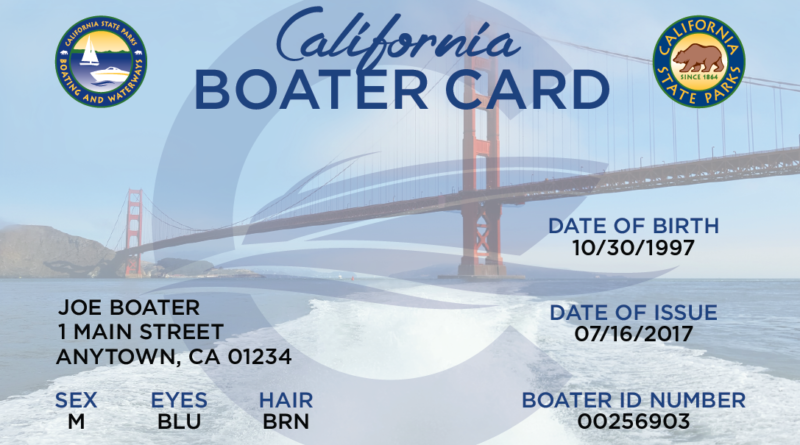California Boater Card: The Case for Boater Education
SAN DIEGO — Have you taken a boating education class? If not, why?
Regular readers know I’m a strong advocate for boater education, including mandatory education. I’m always seeking additional classes to increase my own skills that I can also share with readers. With the new California Boater Card – which requires passing a test – phasing in beginning in January, now is an ideal time to take a class.
Recently I returned for a refresher course at San Diego’s Maritime Institute, where I took my original captain’s training, necessary for my five-year license renewal. I’ll admit I was nervous about the exam, recalling all the material that had escaped my brain. Before the class I spent several days immersing myself in every arcane section of the Rules of the Road, and hours reminding myself of the essentials of chart plotting, a necessary skill if you lose access to electronic navigation tools.
When I arrived at class I felt encouraged when I met my fellow students, some of whom were returning to “refresh” their knowledge for their fifth or sixth license renewal, in contrast to my first. Fortunately the instructor, as with my initial course, was excellent and I came away confident in my renewed knowledge, only adding to my joy in passing the exam.
Why, if you’re just a casual or occasional boater, bother taking a boating safety class? More knowledgeable, educated boaters make for safer waters for all of us. Boating education saves lives and prevents many avoidable, if not rookie-like, accidents.
The record bears this out: in 2015, according to state statistics cited on the Department of Boating and Waterways website, 49 people died in 724 California recreational boating accidents and another 232 people were seriously injured.
“Only one of the boat operators involved in fatal accidents had taken an approved boating safety course,” reports the California Boater Card website (dbw.parks.ca.gov).
That’s why Gov. Jerry Brown signed into law Senate Bill 941, requiring most operators of motorized vessels – including Jet skis and sailboats with engines – to carry a California Boater Card. The boater card mandate will be phased in by age group during the next seven years.
Even if you’re in an age group that won’t require a boater card immediately, why not get ahead of the pack? Remember, every boat operator will need one by 2025.
Taking a class could improve your and your family’s safety, and might save your life or the life of one of your passengers, so don’t delay. Classes are easy to find and can even be done online in only a few hours. That’s a small investment compared to the additional safety you’re gaining.
For greater benefit, take a class in person with fellow boaters. That way you can profit from interaction with a live instructor and other students.
Boating safety classes also help you stay abreast of any changes in boating law and practices and serve as great reminders of key information that may have slipped your mind. When I first started boating on the Chesapeake Bay I took my first boating safety course. After we moved to California, I took another one, filling in forgotten material. The U.S. Coast Guard Auxiliary and the U.S. Power Squadrons teach basic boating courses, as does an array of other providers. You can find a list of approved courses at californiaboatercard.com.
If you find you’re hungry for more knowledge, consider taking a captain’s license course from a school such as the Maritime Institute (maritimeinstitute.com), even if you have no interest in gaining your license. You and you crew will definitely feel safer with your enhanced expertise.
Division of Boating and Waterways photo



There’s no better way to learn than for free: California Boaters Can Now Take Free Boating Safety Course: https://www.boatus.com/pressroom/release.asp?id=1281
Pingback: California Boater Card: The Case for Boater Education - Sea Magazine